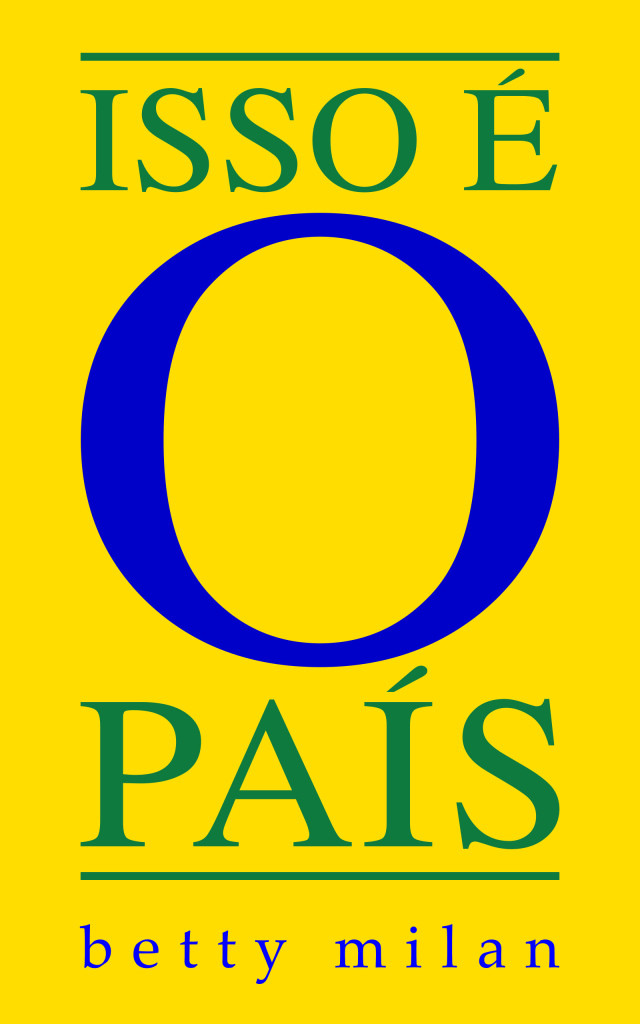
excerpt
“Who are we?” Celso Furtado’s question reiterates that of Affonso Romano de Sant’Anna and Roberto DaMatta, in symptomatic repetition. If the question never ceases to be posed, it is because identity never ceases to elude our intelligentsia, characterized by the effort to grasp it. What explains this fruitless quest? To what do we owe this other form of poverty or unhappiness?
synopsis
This is a collection of various articles published by Betty Milan in the Brazilian press between 1979 and 1998, selected by the author and organized thematically: “Cultura e identidade” [Culture and Identity],” Machismo”, “Mídia” [Media], “Loucura e crime” [Insanity and Crime], “Criança de rua” [Street Kid], “Gente” [People].
“Cultura e identidade” deals with the significance of the culture of play for us Brazilians. There is also comparative analysis of Brazilian and foreign cultures.
“Machismo” demonstrates the importance of the figure of the Other, the rival, in the Brazilian feminine mystique. It also focuses on crimes in which machismo manifested itself through the killing of women.
“Mídia” presents evidence of the neglect of the print and television media vis-à-vis the culture of play. Broadcasting of the parade of samba schools is criticized because, in the manner of a pornographic film, television focuses solely on the reveler’s body to arouse the viewer’s lust, making what was play into an exhibitionistic perversion.
“Loucura e crime” comprises articles relating to violence at the Asylum for the Criminally Insane, where the unconscionable practice of imprisonment without trial is the rule.
“Criança de rua” deals with abandoned children in Rio de Janeiro and São Paulo, their way of life, and the attempts to find a solution to the problem.
Finally, in “Gente” are found the author’s principal articles about Brazilian writers, politicians, and artists of her time. The collection reveals the varied gamut of the author’s interests and how attentive she has always been to her country.
history
Published in 1984 in a co-edition with aOutra, the press of the Freudian School of Rio de Janeiro, and Kairós, in São Paulo, Isso é o país was launched in the auditorium of the Folha de S. Paulo in the context of a debate on national affairs in which participated poet and translator Claudio Willer, university professor José Miguel Wisnik, and anthropologist Roberto DaMatta.
At the beginning of the decade of the 2000s, with the title out of print for several years, the author decided to revisit the volume for a new edition and brought together various articles, maintaining the thematic approach employed in the book, with the exception of “Mídia,” which was excluded.
The “Gente” theme was retitled “Antropófagos brasileiros” [Brazilian Cannibals] and two additions were made: the epilogue entitled “Manifesto tupiniquim” [Tupiniquim Manifesto] and “O Brasil no imaginário dos portugueses” [Brazil in the Imagination of the Portuguese].
Although unavailable in print form, the reformatting of the book is part of the author’s Selected Works.
opinion
“I envy in Betty Milan’s texts the style, the dynamism, and the lightness with which she dealt with the diverse themes…”
Roberto DaMatta, Folha de S. Paulo, Ilustrada, p. 20, November 30, 1984
areas of interest
Sociology, Law, Anthropology, Gender Studies.
critical reaction
where to purchase
Livraria Cultura (portuguese e-book) | Amazon (portuguese e-book)


